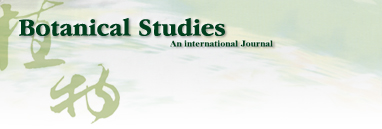| TITLE |
Effects of carbenicillin and cefotaxime on callus growth and somatic embryogenesis from adventitious roots of papaya |
| AUTHOR |
Tsong-Ann Yu
Department of Botany and 2Department of Plant Pathology, National Chung Hsing University, Taichung 402, Taiwan, Republic of China
Shyi-Dong Yeh
Jiu-Sherng Yang
Department of Botany and 2Department of Plant Pathology, National Chung Hsing University, Taichung 402, Taiwan, Republic of China |
| FULL TEXT |
[in HTML format] [in PDF format]
|
| ABSTRACT |
Carbenicillin and cefotaxime, two antibiotics commonly used for excluding Agrobacterium tumefaciens during plant transformation, were tested for their bacteriostatic effects as well as for their effects on plant regeneration in adventitious root explants of papaya following co-culture with Agrobacterium. A washing step with sterilized distilled water two days after co-culture enhanced the bacteria-suppressing effects of antibiotics. Proliferation of Agrobacterium was completely suppressed in the medium containing 125 mgl-1 carbenicillin or cefotaxime. Callus fresh weight increase was apparently enhanced in the media with higher concentrations of carbenicillin (250-500 mgl-1), but was extremely inhibited in media with the same concentrations of cefotaxime. Higher percentages of somatic embryos were found in the medium with 125 mgl-1 carbenicillin or 250 mgl-1 cefotaxime; however larger numbers of somatic embryos from the individual callus were obtained in the medium with 125 mgl-1 carbenicillin than in the medium with 250 mgl-1 cefotaxime. Percentages of abnormal somatic embryos were lower in the medium with lower concentrations of carbenicillin (125-250 mgl-1). Favorable conditions for use of the two antibiotics for suppressing bacteria growth and enhancing regeneration of papaya plantlets from adventitious roots are discussed. |
| KEYWORD |
Antibiotics; Bacteriostatic effect; Somatic embryogenesis; |
| ARTICLE INFO |
Botanical Bulletin of Academia Sinica, Volume 42 Number 4 October 2001, page 281-286, 6 pages |
| PUBLISHER |
Institute of Plant and Microbial Biology, Academia Sinica, Taipei, Taiwan, Republic of China |

